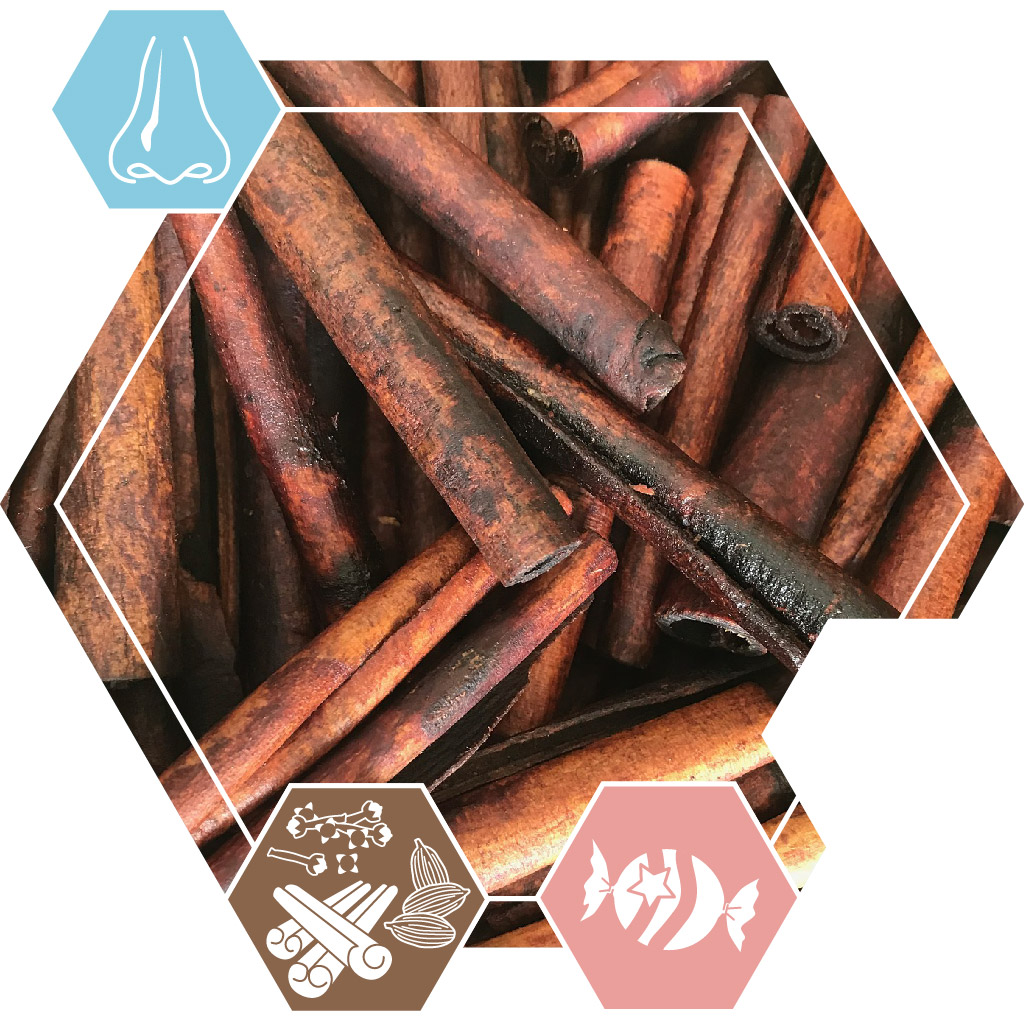Fragrance raw material
Description
Essential oil Cassia Bark is an essential oil for use as a fragrance. Use it in perfumes, cosmetics, and other scented products.
Note!
Before purchasing, read all the information below and the general product information.
Not intended for use in food, vape liquids, or other internal use.
Intended for mixing with other fragrances: on its own, the scent can be dull or even unpleasant.
Do not use undiluted on the skin: it is a raw material, not a finished product.
Use
Essential oil Cassia bark has a woody, spicy scent that is not particularly strong and therefore does not need to be diluted before mixing. It blends well with other spice scents, ambers, and floral scents such as carnation, rose, and lavender. In gourmand fragrances, it's a good modifier to soften the sweetness of these scents. It's a component of the scent of traditional brown Windsor soap. Cassia adds a hint of spice. Typically, between 0,1% and 5% of this substance is used in fragrance compositions. In perfumes, it primarily forms a heart to base note and is fairly stable in most products. It's also frequently used in soap, although not much of the cinnamaldehyde present in the oil remains when used. Cassia oil can cause discolouration in the final product.
Store in a cool, dry, and dark place.
Properties
Essential oil Cassia bark is a yellow to brown liquid at room temperature. The substance has a relatively long shelf life. The oil is produced by steam distillation from the bark of Cinnamomum cassia (L.) J.Presl., a close relative of true cinnamon. To distinguish between the two, Cassia is also called "Chinese cinnamon". Note: Cassia and Cassie are unrelated; they are simply names that coincidentally resemble each other. Like any essential oil, this one is a mixture of various substances. The composition is as follows:
> 25% - Cinnamic aldehyde
2-5% - Beta Caryophyllene, Coumarin, Phellandrene
1-2% - Eugenol, Limonene
For all raw materials, but especially the more natural ones, the scent, colour, and other properties can vary within a certain range from batch to batch and over time.
Technical details
Density: 1,06
Sustainability
This fragrance raw material is made from renewable resources. Producing an essential oil requires energy. Its biodegradability is reasonable.
Packaging
The 10 and 50 ml containers are made of brown glass with a black, child-resistant plastic (PP) cap. The 250 g container is made of aluminium with a white plastic (PP) cap. We cannot supply the latter to private individuals because it does not have a child-resistant cap.
The container has a standard caps; for dispensing small amounts, we recommend using plastic pipettes.
Hazards
Cassia bark essential oil is classified as a hazardous substance with the following characteristics:
WARNING
H312 - Harmful in contact with skin.
H315 - Causes skin irritation.
H317 - May cause an allergic skin reaction.
H319 - Causes serious eye irritation.
Cassia bark essential oil contains the allergenic substances cinnamaldehyde and coumarin, as well as others in smaller quantities.
Harmful in contact with skin, but then I can't use it in perfume? When used normally in perfumes, the concentration is so low that it's no longer harmful on skin contact. The pure raw material is, so wear gloves and wash your hands after working with this substance.
Codes
Article number: 20139
Dutch name: Etherische olie Cassia bast
EC number: 284-635-0
CAS number EU: 84961-46-6
CAS number TSCA: 8007-80-5
FEMA number: 2258
INCI: CINNAMOMUM CASSIA OIL




